
There's the potential for new nonalcoholic fatty liver disease and multiple sclerosis drugs to be approved in 2019, said Aimee Tharaldson, PharmD, a senior clinical consultant in Emerging Therapeutics for Express Scripts.

There's the potential for new nonalcoholic fatty liver disease and multiple sclerosis drugs to be approved in 2019, said Aimee Tharaldson, PharmD, a senior clinical consultant in Emerging Therapeutics for Express Scripts.

Pharmaceutical companies have helped in the shift to value-based care through value-based prices, as well as outcomes- and performance-based risk-sharing contracts, explained Robert Navarro, PharmD, clinical professor, College of Pharmacy, University of Florida.
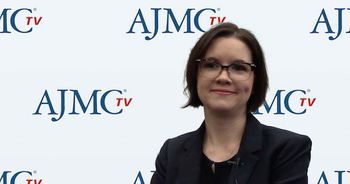
The endgame for both the health system and the payer is always the patient, so we try to focus on treating patients in the most cost-effective manner with the most clinically appropriate evidence-based approach, explained Ashley Pappas, PharmD, MHA, assistant director of pharmacy, University of North Carolina Hospitals.
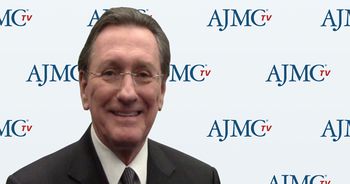
Calvin Knowlton, BScPharm, MDiv, PhD, chief executive officer and founder of Tabula Rasa HealthCare, discusses innovative practices that have been introduced in Enhanced Medication Therapy Management (eMTM) and what he sees in the future for eMTM improvement and innovation.

Tina Joseph, PharmD, BCACP, assistant professor, college of pharmacy, Nova Southeastern University, discusses the role of pharmacists in helping manage chronic diseases and the transition for integrating pharmacists into value-based care models.
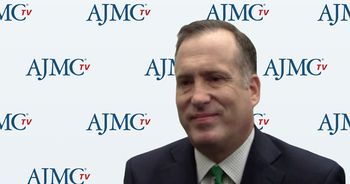
Brian Litten, JD, chief strategic officer, Tabula Rasa HealthCare, discusses how Medication Therapy Management (MTM) services work to improve health outcomes, challenges with the adoption of MTM services, and how CMMI's Enhanced MTM Model addresses these challenges.
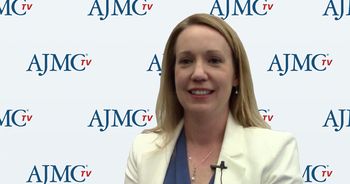
Kimberly Lenz, PharmD, clinical pharmacy manager, MassHealth/Office of Clinical Affairs, University of Massachusetts Medical School, discusses identifying patients most at risk for misusing or abusing controlled substances and how approaches to treatment differ for these patients.

We have to decide if we’re prepared to not cover low-value treatments as we shift to value-based care, said Robert Navarro, PharmD, clinical professor, College of Pharmacy, University of Florida.

Since the Orphan Drug Designation program was passed in 1983, there have been over 600 orphan drug approvals, compared to less than 10 the decade before, said Stephen Jung, PharmD, BCPS, manager, drug information, MedImpact Healthcare Systems, during a session at the Academy of Managed Care Pharmacy’s Managed Care & Specialty Pharmacy Annual Meeting.

Calvin Knowlton, BScPharm, MDiv, PhD, chief executive officer and founder of Tabula Rasa HealthCare, discusses who benefits most from the Enhanced Medication Therapy Management Model, how advances in technology have enhanced these services, and what best practices have been identified.

Aimee Tharaldson, PharmD, a senior clinical consultant in Emerging Therapeutics for Express Scripts, discusses specialty drugs that have recently been approved, and which we will likely see approved in the remainder of the year.

At the Academy of Managed Care Pharmacy’s Managed Care & Specialty Pharmacy Annual Meeting, experts addressed the cost of treating patients with hemophilia and the importance of care coordination to ensure a more holistic approach toward caring for these patients.

Problems in healthcare seem overwhelming, with at least 17 different factors cited as driving unsustainable spending, according to a presentation at the Academy of Managed Care Pharmacy’s Managed Care & Specialty Pharmacy Annual Meeting held April 23-26, in Boston, Massachusetts. Two executives from Precision for Value LLC spoke about “Charting the Shifting Value-Based Healthcare Landscape: Emerging Developments for 2018 and Beyond” and offered their view on what healthcare companies can do to succeed.

Tina Joseph, PharmD, BCACP, assistant professor, college of pharmacy, Nova Southeastern University, discusses collaborative practice agreements between pharmacists and physicians, as well as the challenges with, and best practices for, successful implementation.

We may not be ready for patient-reported outcomes (PROs) to be the sole decision-maker yet, but the trend is toward PROs being included more and more in value-based processes, explained Somali Burgess, PhD, senior director, Xcenda.

During a Science and Innovation Product Theater, sponsored by Amgen, Seth J. Baum, MD, FAAC, FACPM, FAHA, FNLA, FASPC, president of the American Society for Preventive Cardiology, explained the significance of evolocumab's expanded indication, which makes it no longer mandatory for patients to try statins first.

There are 6 key issues that market access teams are facing amid evolving marketplace trends in the pharmaceutical industry, said Douglas Long, BS, MBA, vice president, industry relations, IQVIA, when speaking at the headline session of the Academy of Managed Care Pharmacy’s Managed Care & Specialty Pharmacy Annual Meeting held April 23-26, in Boston, Massachusetts.

Migraine is a chronic illness, but many people, including both patients and healthcare providers­, don’t think of it that way, said Richard G. Wenzel, PharmD, CPPS, speaking at the Academy of Managed Care Pharmacy’s Managed Care & Specialty Pharmacy Annual Meeting held April 23-26, in Boston, Massachusetts.

There is a lot of competition in specialty pharmacy right now, said Aimee Tharaldson, PharmD, a senior clinical consultant in Emerging Therapeutics for Express Scripts.
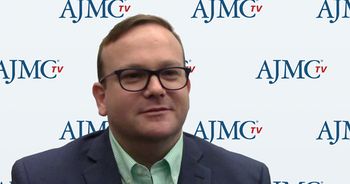
Brandon Newman, PharmD, MMHC, CSP, program director, specialty pharmacy, Vanderbilt University Medical Center, explains the benefits of collaboration between payers and academic centers and how this collaboration, in turn, benefits patients.

When Robert Navarro, PharmD, started his career decades ago at a managed care company, healthcare as a percentage of the gross domestic product was 8%. Now, the clinical pharmacy professor noted, the figure is at nearly 18% and rising, and the industry keeps having a conversation about value­. Speaking at the Academy of Managed Care Pharmacy’s Managed Care & Specialty Pharmacy Annual Meeting, held April 23-26, in Boston, Massachusetts, he and Ashok Vegesna, PharmD, MS, of Novartis, spoke about Visions of a Value-Based Health Care System.

Through Medication Therapy Management, a pharmacist will be able to recognize indications of potential opioid abuse, explained Brian Litten, JD, chief strategic officer, Tabula Rasa HealthCare.

Value-based care can only occur if it is transformative throughout an entire healthcare system or a component of the healthcare system, said Robert Navarro, PharmD, clinical professor, College of Pharmacy, University of Florida.

At the Academy of Managed Care Pharmacy's Managed Care & Specialty Pharmacy Annual Meeting, held April 23-26, in Boston, Massachusetts, an overflow capacity crowd gathered for one of the meeting’s yearly highlights­: Specialty Pharmaceuticals in Development. Aimee Tharaldson, PharmD, a senior clinical consultant in Emerging Therapeutics for Express Scripts, talked about the key trends in the specialty drug market, including cancer drugs, new competition, and orphan drugs.
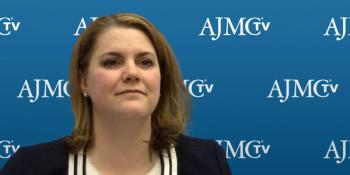
Jennifer Graff, PharmD, vice president of comparative effectiveness research at the National Pharmaceutical Council, discusses where payers receive their information and how it is used to make decisions about coverage and reimbursement.

Prescribers and pharmacies can encounter some unique challenges when specialty drugs are e-prescribed, but organizations like the National Council for Prescription Drug Programs are trying to make the process smoother, explained Laura Topor, president of Granada Health.
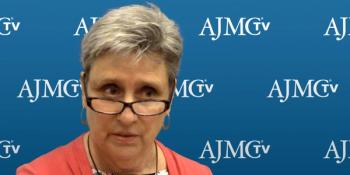
Informed consent is one of the principal values in healthcare, but it should include discussions about cost, said Jacqueline Glover, PhD, professor in the Department of Pediatrics and the Center for Bioethics and Humanities at the University of Colorado Denver. Glover also discussed the need to clarify the language surrounding end-of-life care.

Real-time prescription benefit transactions are designed to give clinicians essential information on an individual patient’s benefits before writing a prescription, according to Laura Topor, president of Granada Health.

Clinicians have obligations of justice when treating patients, which can lead to difficult decisions on how to ethically allocate limited resources to patients as a whole, said Jacqueline Glover, PhD, professor in the Department of Pediatrics and the Center for Bioethics and Humanities at the University of Colorado Denver.

Working with real-world evidence-based data can pose difficulties, both when collecting and analyzing the information, but redesigned incentives could help drive entities to provide more information, said Lou Garrison, PhD, professor emeritus in the Department of Pharmacy, University of Washington.

259 Prospect Plains Rd, Bldg H
Cranbury, NJ 08512
© 2025 MJH Life Sciences®
All rights reserved.
